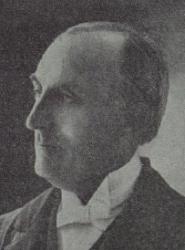Planning worship?
Check out our sister site, ZeteoSearch.org,
for 20+ additional resources related to your search.
- |
User Links
Person Results
E. J. Hopkins

1818 - 1901 Person Name: Edward John Hopkins (1818- ) Composer of "ALLELUIA" in Carmina for the Sunday School and Social Worship Dr Edward John Hopkins MusDoc United Kingdom 1818-1901. Born at Westminster, England, the son of a clarinetist with the Royal Opera House orchestra, he became an organist (as did two of his brothers) and a composer. In 1826 he became a chorister of the Chapel Royal and sang at the coronation of King William IV in Westminster Abbey. He also sang in the choir of St. Paul’s Cathedral, a double schedule requiring skill and dexterity. On Sunday evenings he would play the outgoing voluntary at St. Martin’s in-the-field. He left Chapel Royal in 1834 and started studying organ construction at two organ factories. He took an appointment at Mitcham Church as organist at age 16, winning an audition against other organists. Four years later he became organist at the Church of St. Peter, Islington. In 1841 he became organist at St. Luke’s, Berwick St., Soho. Two Years later he was organist at Temple Church, which had a historic organ (built in 1683). He held this position for 55 years. In 1845 he married Sarah Lovett, and they had four sons and five daughters. He was closely associated with the Bach Society and was organist for the first English performances of Bach’s St. Matthew Passion. In 1855 he collaborated with Edward Rimbault publishing “The organ, its history and construction” (3 editions 1855-70-77). In 1864 he was one of the founders of the “College of organists”. In 1882 he received an honorary Doctorate of Music from the Archbishop of Canterbury. He composed 30+ hymn tunes and some psalm chants, used by the Church of England. He died in London, England.
John Perry
E. J. Hopkins
J. H. Rosecrans

1845 - 1926 Composer of "[Shepherd sweet and fair and holy]" in The Jewelled Crown James Holmes Rosecrans studied at the Baxter University of Music in Friendship, New York. After teaching for two years, he joined the Fillmore Brothers Music House in Cincinnati, Ohio. As of 1880, he was teaching music in Douglas County, Colorado. In 1884, was an evangelist in California, and later was associated with evangelistic efforts in Texas, and taught music and Bible at Carlton College in Bonham, Texas. He published over 20 music collections in his lifetime.
© The Cyber Hymnal™ (www.hymntime.com/tch)
J. H. Rosecrans
George T. Congreve
b. 1821 Person Name: George Thomas Congreave (1821- ) Author of "Shepherd sweet and fair, and holy" in Carmina for the Sunday School and Social Worship Congreve, George Thomas, born at Islington, 1821, and educated for the medical profession, has practised in London for many years. As a Deacon of the Baptist Church, Kye Lane, Peckham, and Superintendent of its Sunday School, he has done much to advance the interests of that body, and to popularise Sunday School work. In the interest of Sunday Schools he published, in 1869:—
Gems of Song for the Sunday School. A Hymn-book adapted for General Use in Schools and Families. Loud., Elliott Stock. To this was added Gems of Song Music, 1871.
Of this collection about one million copies have been sold. Mr. Congreve contributed thereto:—
1. Beyond the dark river a land I behold. Heaven.
2. For ever beautiful abide. Heaven.
3. Hark! what voice the silence breaks. Invitation.
4. How sweet [holy] is the Bible, how pure is the light. Holy Scriptures.
5. Look back! 'tis time I marked the road. New Year.
6. Look to Jesus! yes I may. Looking to Jesus.
7. Mark the lilies, frail and fair. Flower Services.
8. 0 Saviour, dear Saviour, remember me now. Lent.
9. Shepherd sweet, and fair, and holy. Prayer to the Good Shepherd.
10. Sweet Star of the morning. Christ the Morning Star.
I1. There is a throne of matchless grace. The Throne of Grace.
Most of these hymns have been repeated in other collections for children. They are elevated in tone and simple and direct in expression; and are specially useful for children's services.
--John Julian, Dictionary of Hymnology (1907)
George T. Congreve


 My Starred Hymns
My Starred Hymns

